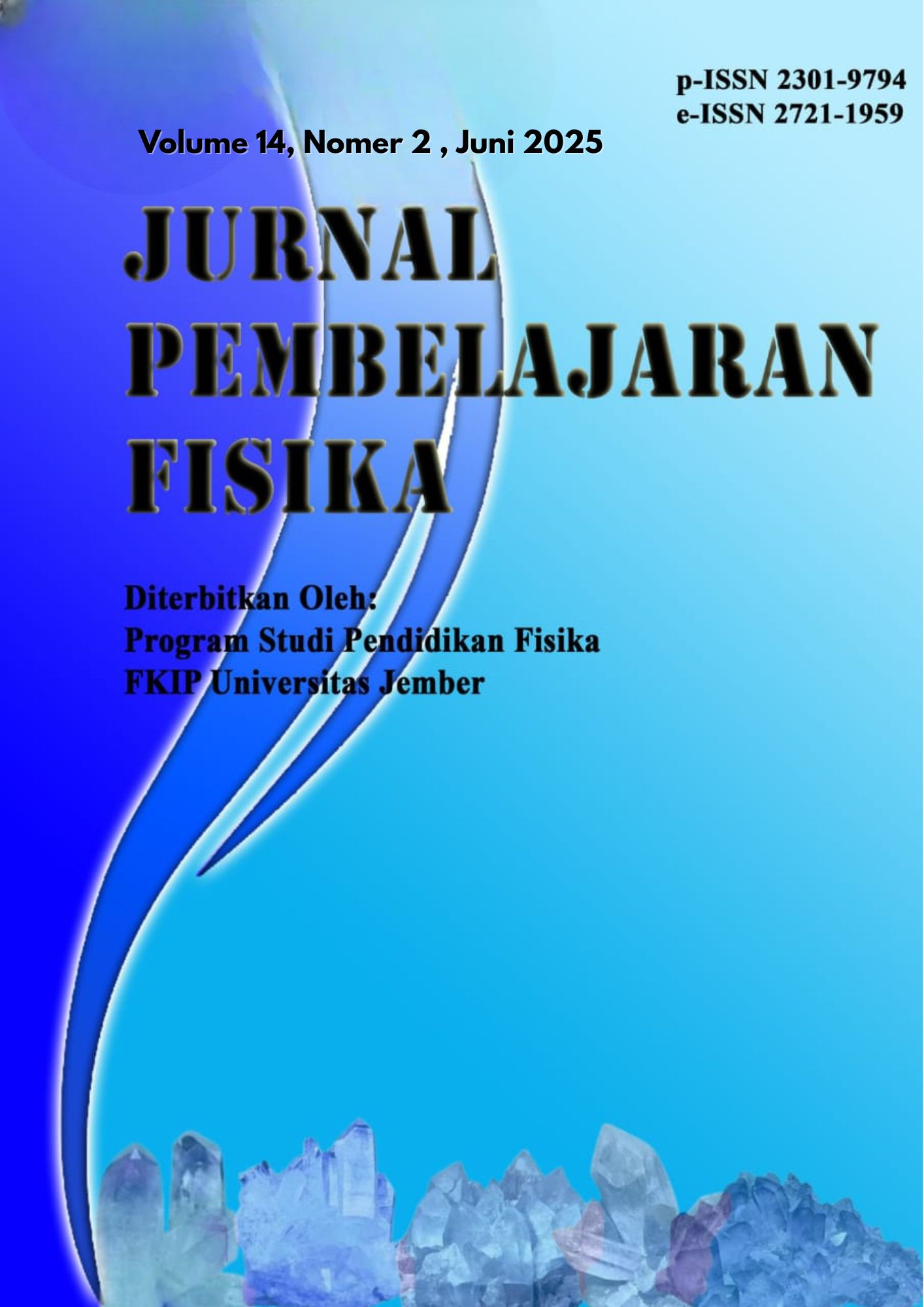Analysis of Mathematical Reasoning Ability of High School Students on Newton's Law Material
Abstract
Mathematical reasoning ability refers to the capacity to make strong assumptions and draw accurate conclusions regarding the relationships among mathematical ideas, as well as how these ideas are logically interconnected. This study employed a quantitative descriptive non-experimental research design. The research was conducted by administering a mathematical reasoning test consisting of five items related to Newton's laws, with a total duration of 2 × 45 minutes. The study took place in the second semester of the 2024/2025 academic year and involved 140 students from two public senior high schools in Jember City: SMAN 2 Jember and SMAN 4 Jember.The findings revealed that the average level of students' mathematical reasoning ability was distributed as follows: (1) formulating conjectures scored 77, which falls into the strong category. (2) predicting answers and calculation processes scored 39, categorized as weak. (3) Mathematical manipulation achieved a score of 52, indicating a moderate level. (4) drawing conclusions obtained the lowest score, 20, placing it in the very weak category. The results of this study can be used as a reference for educators in developing a series of lessons, in order to improve students' mathematical reasoning skills which are directly proportional to students' learning outcomes.
Downloads
Downloads
Published
Issue
Section
License
Copyright (c) 2025 Ulul Azmi Putri, bambang supriadi

This work is licensed under a Creative Commons Attribution-ShareAlike 4.0 International License.


-14(3)_minimalis_pages-to-jpg-0001_(2).jpg)
_(3)2.jpg)









